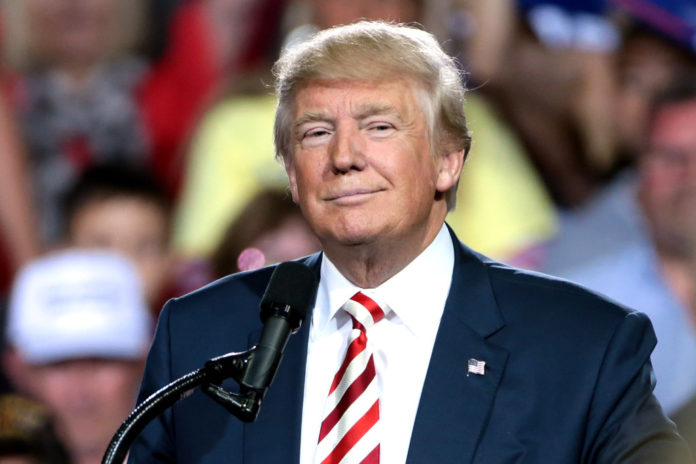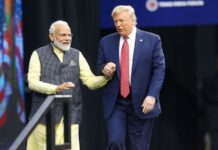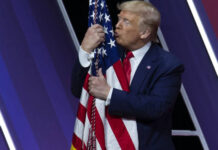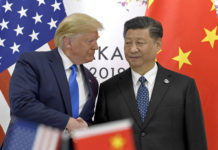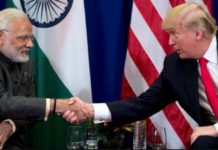Washington: The message that has emerged from the G7 summit that concluded in Biarritz in France back home in the US is the increasing isolation of President Donald Trump.
Mildly put it, top leaders led by French President Emmanuel Macron told Trump in no uncertain terms that he cannot afford to be a bull in china shop on the issue of trade war with China.
As the G7 summit concluded, the differences among leaders only appeared to have sharpened. Many crucial agreements seemed further out of reach due to the belligerent attitude of the US President. In his winding-up news conference, Trump looked ‘happy’ with the way the meeting ended — without major breakthroughs.
Despite being talked down on his stand on the trade war with China that is upsetting global economies, Trump defended the wild tantrums in his negotiating style — sometimes unleashing blistering attacks on China and then suddenly showering effusive praise on Beijing. He defended his style saying “Sorry, it’s the way I negotiate. It’s done very well for me over the years, and it’s doing even better for the country.”
As the G7 meeting concluded, many of the most pressing issues on the global agenda remained unresolved, mainly because Trump was undecided on how to proceed. Despite pressure from world leaders, he said he planned to continue pressing China with trade penalties if President Xi Jinping did not agree to major concessions.
But Trump should be a worried man back home. In an unusual move, the White House has air-dashed Agriculture Secretary Sonny Perdue to places like Minnesota, Iowa and Wisconsin to calm the nerves of farmers.
This comes as farmers are getting increasingly frustrated at Trump’s trade war. Perdue found this cloud of frustration at the annual Farmfest gathering in southern Minnesota where he was booed down.
In the trade war with China, American farmers have become collateral damage. Sales of American soybeans, pork, wheat and other agricultural products to China have dried up as Beijing retaliated against Trump’s tariffs on Chinese imports.
Lucrative contracts that US farmers had pocketed a few years ago have vanished with China looking to other nations like Brazil and Canada to get the commodities they need. Farm bankruptcy filings in the year through June were up 13 percent from 2018 and loan delinquency rates are on the rise, according to the American Farm Bureau.
The predicament of farmers is becoming a major political problem for Trump as he heads into an election year. Not long ago, farmers had solidly backed the US President who had assured them that the agricultural industry will win in the end of the trade war. But the farming lobby now says they are losing patience with the president’s approach and are suggesting it will not take much to lose their vote as well.
A report from the Agriculture Department this month found that Canadian wheat exports to China have “rocketed” this year, while exports from the United States have plunged spreading panic among farmers.
But as the trade fight gets uglier, farmers are beginning to panic. And this became evident when China said it will no longer buy American agricultural products and announced that it would raise tariffs on $75 billion of exports from America.
US lobster exports to China too have fallen off a cliff as Beijing slapped heavy tariffs even as business is booming in Canada. The loss of business in US has brought painful layoffs to many key players.
The US exported less than 1 million kg of lobster to China this year through June against 8 million kg during that same period last year. That’s a more than 80% drop.
Not just the farming sector is hit. From technology startups to large corporations have gasping from some financial breath.
At the G7 summit, Trump was told that he can either continue the trade war with China or prod global economic growth; but he cannot do both at the same time.






























